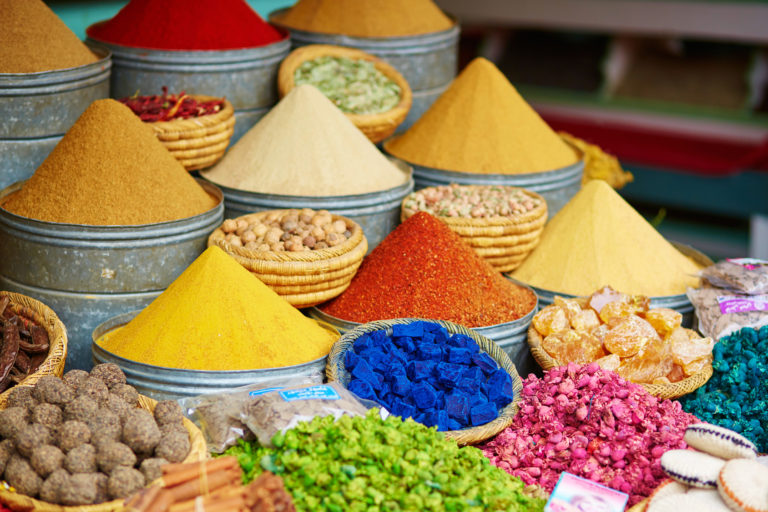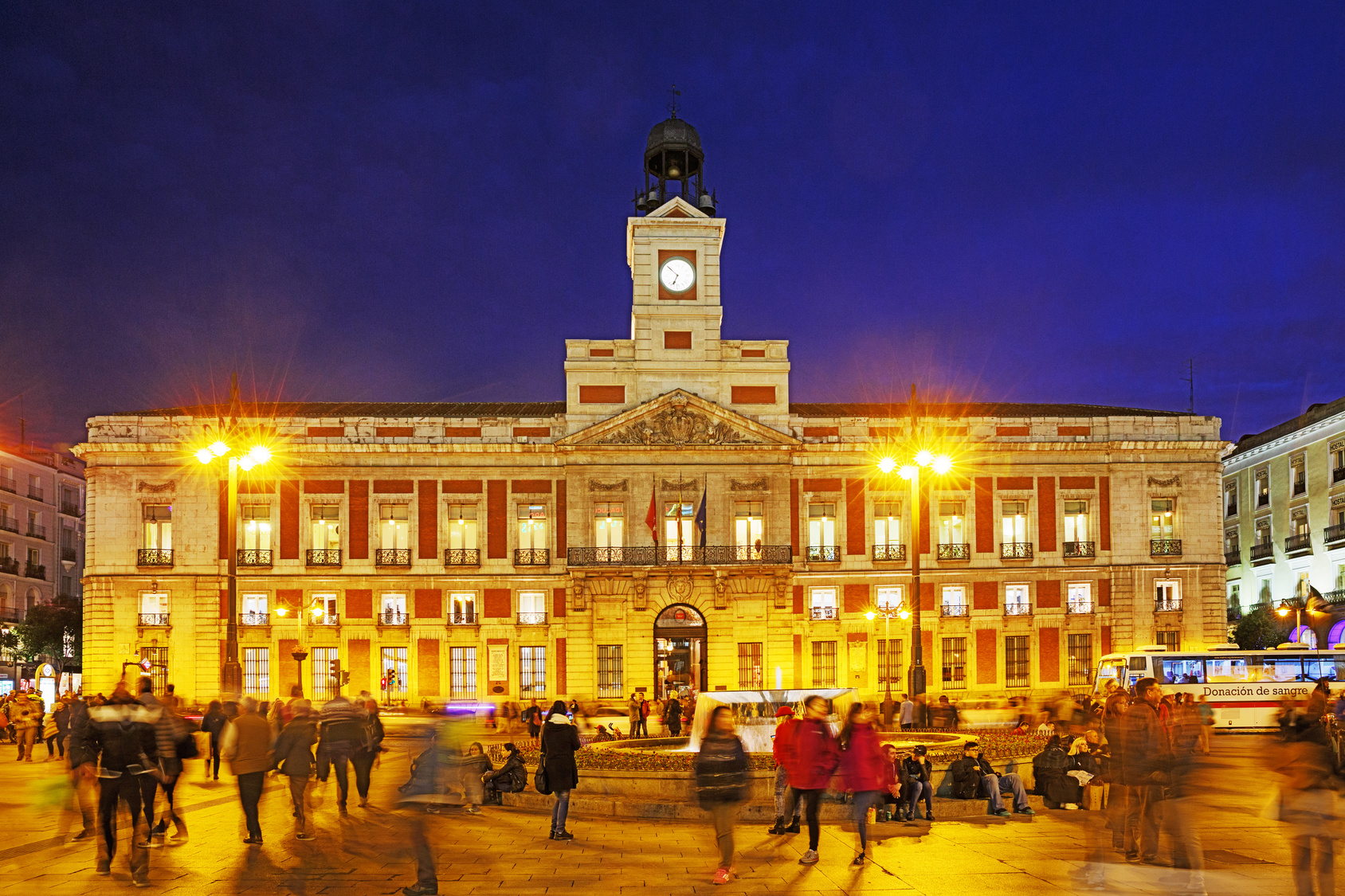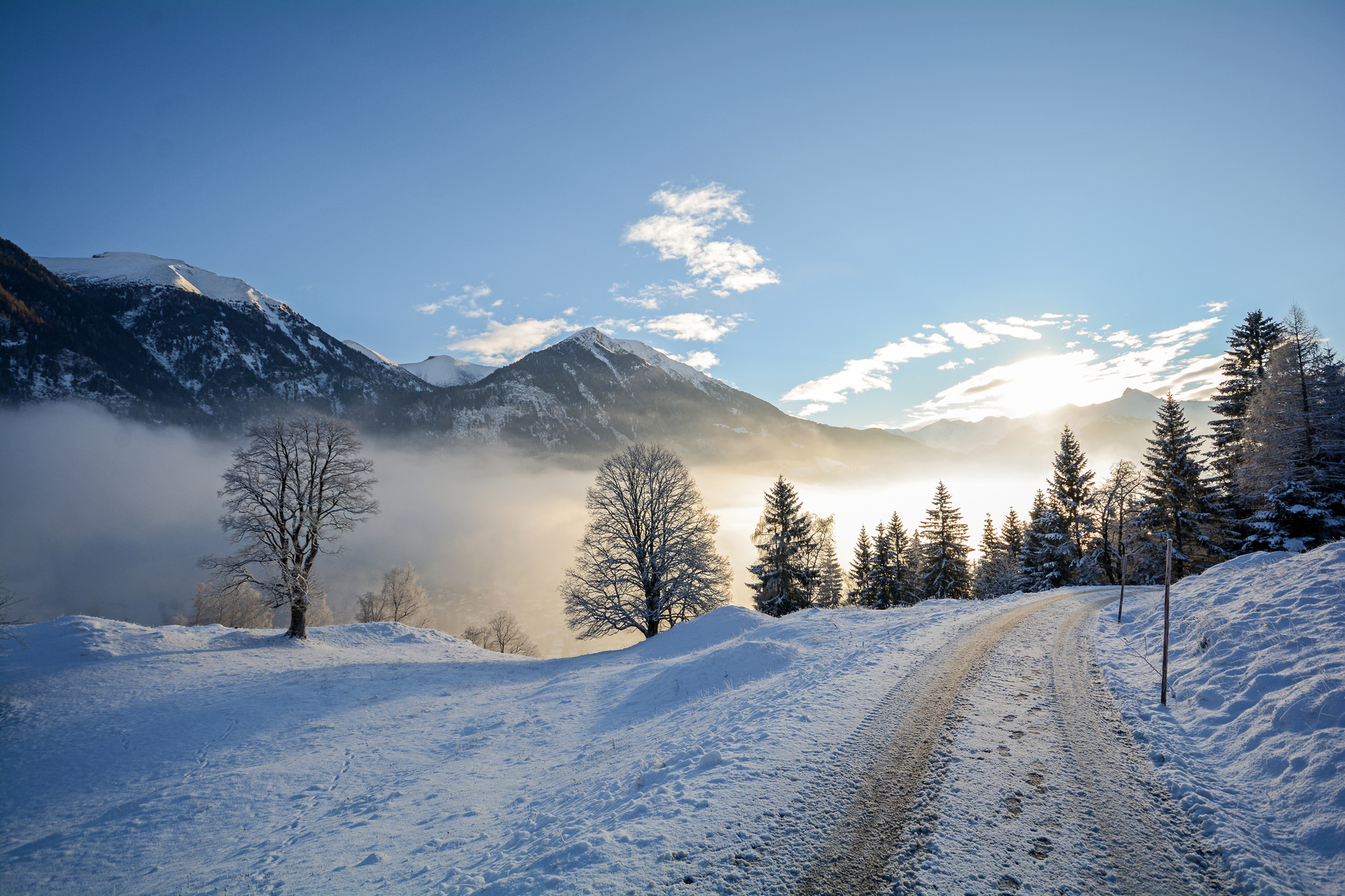Introduction
Exotic, diverse and naturally beautiful, Morocco, in North Africa, is a feast for the senses. Rugged windswept coastlines, high altitude mountain ranges and inland deserts inhabited by the nomadic tribes lie in complete contrast to the bustling souks and ancient medinas that are vibrant, full of colour and bursting with fragrant scents.
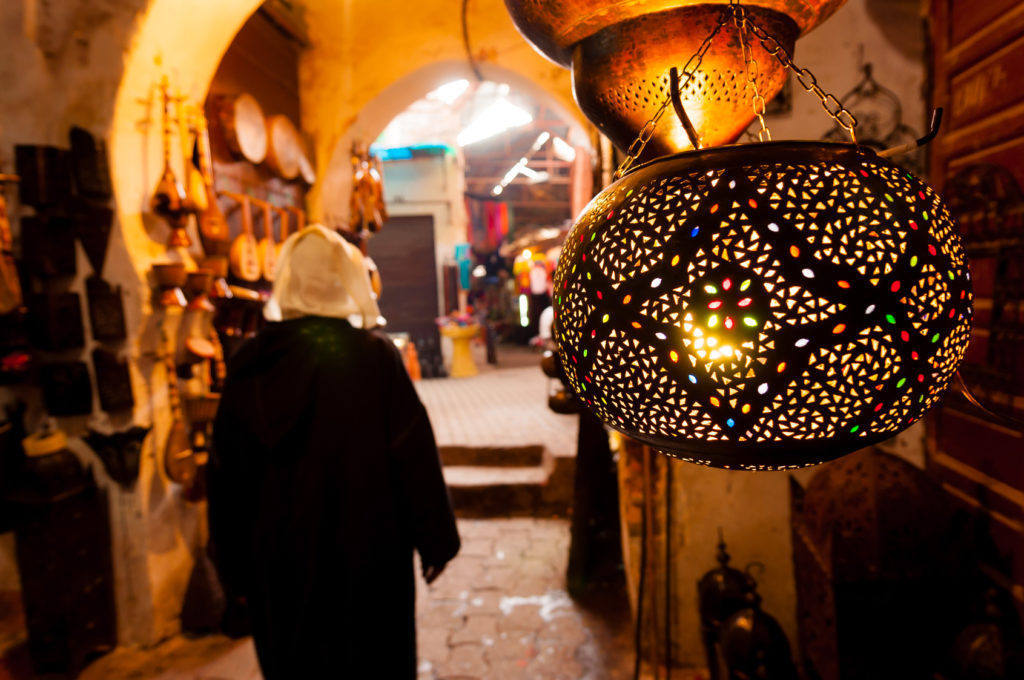
What To Do
Morocco’s diversity is tailor made for travellers. The stunning landscape is made up of the High Atlas Mountains, as well as the Rif ranges that give way to the rugged lowlands, waterfalls, caves, and of course the tranquil and serene Saharan oases. Hiking in the mountains is an exhilarating experience and the skies at night over the desert are simply magical.
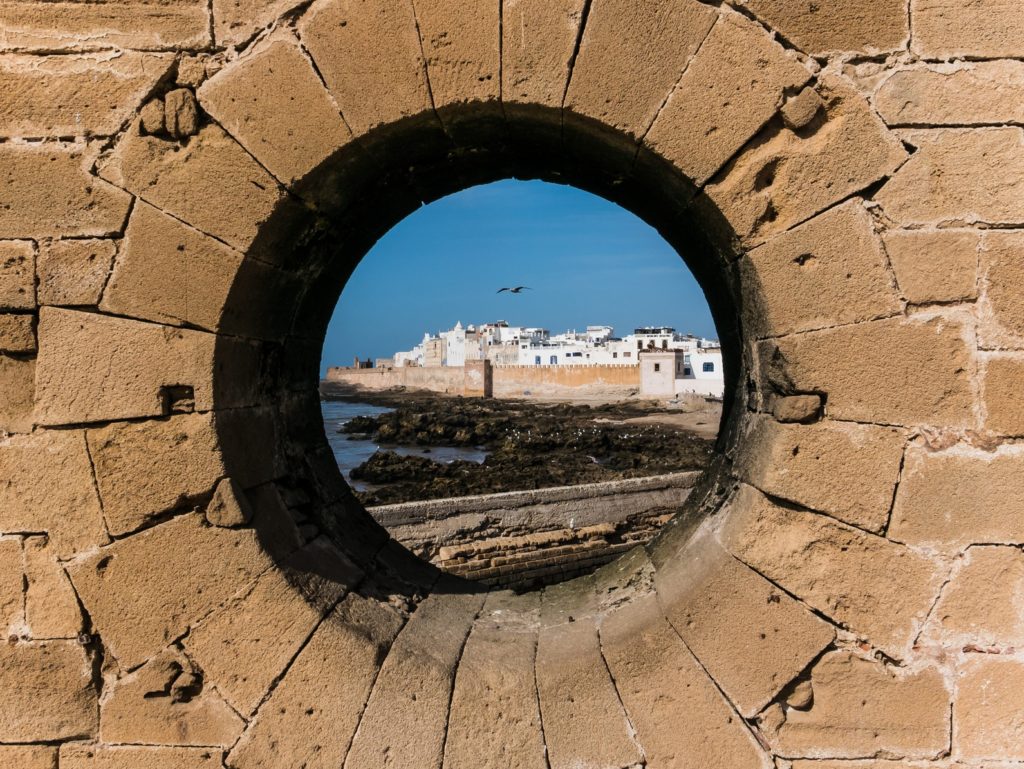
On the coastline, you can hang out in the laid back resort of Essaouira or enjoy a more tourist orientated few days in Agadir.
Alternatively, feel like you are stepping into another world in the ancient medinas. The mystery and incredible vivacity of these towns is infectious. Drink mint tea, shop for silver or carpets and chat to the hospitable local people who offer a real insight into the culture of this fascinating country.
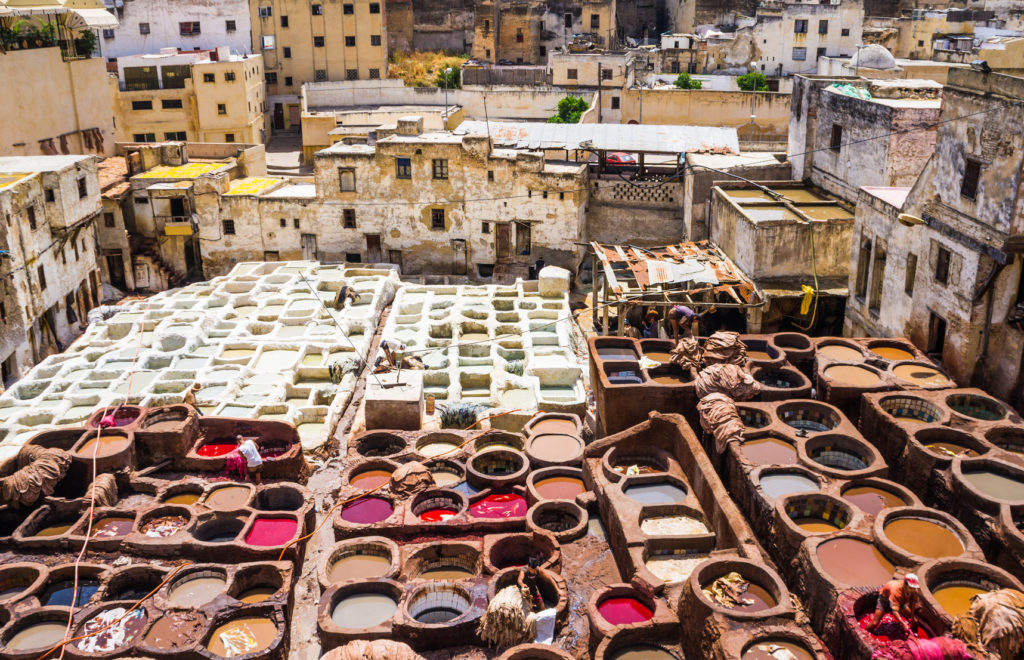
Fez, the largest living medieval Islamic city, is now a World Heritage Site, as is the Djemaa el-Fna, the street theatre carnival in Marrakesh.
To see another side of Morocco, take a trip to Oudaias and visit the Kasbah. Located in the oldest part of the city, the views from here are breath taking. The whitewashed houses built by Muslim refugees from Spain and the narrow streets are very pleasant to wander around on a tranquil and relaxing morning.
Local Cuisine
Think aromatic and spices when you think about Moroccan food – a wonderful cuisine influenced by Arabic, Andalucían and French dishes and bursting with unique and mysterious flavour combinations that really get the palate working. Olives and preserved lemon complement the Moroccan tagines made with chicken or lamb, while cinnamon is often paired with meats to give a depth of flavour. Fresh fish is commonplace on a Moroccan menu, so try the sardines coasted with coriander, parsley, cumin and chilli.
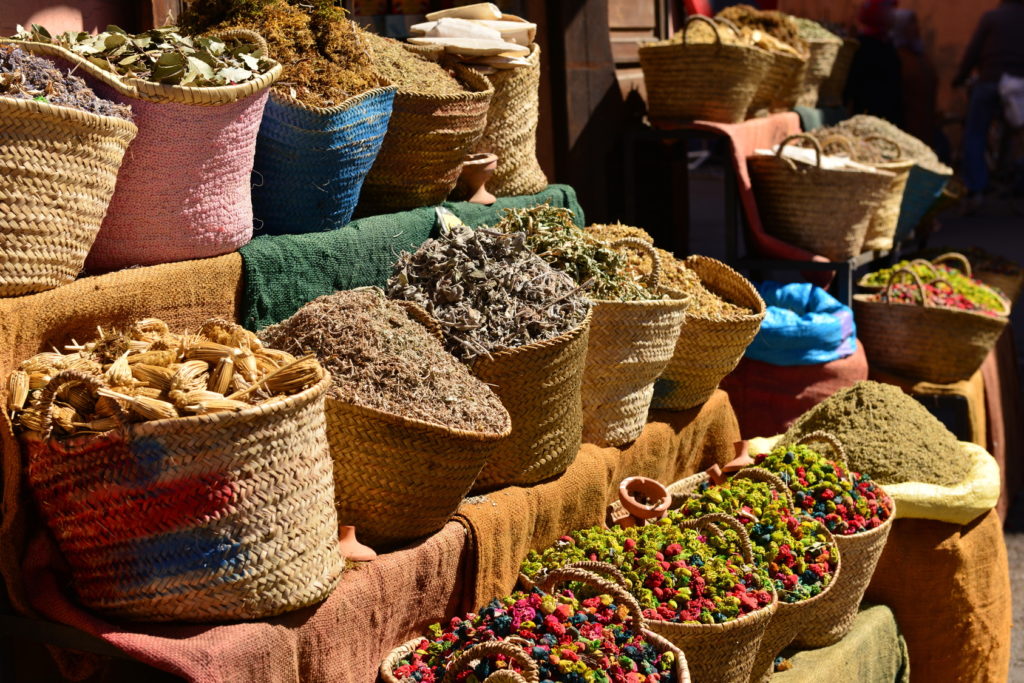
Makouda is the local street food, which can be anything from sheep’s cheeks to snails cooked in a spicy soup. Couscous is a staple, as is the delicious harira soup, a warming combination of chickpea, lamb and tomato.
Climate
The climate in Morocco varies vastly depending on where you go. The inland areas of the south are best visited outside the months of July and August, when the heat can be overwhelming. These months, however, are ideal for coastal holidays.
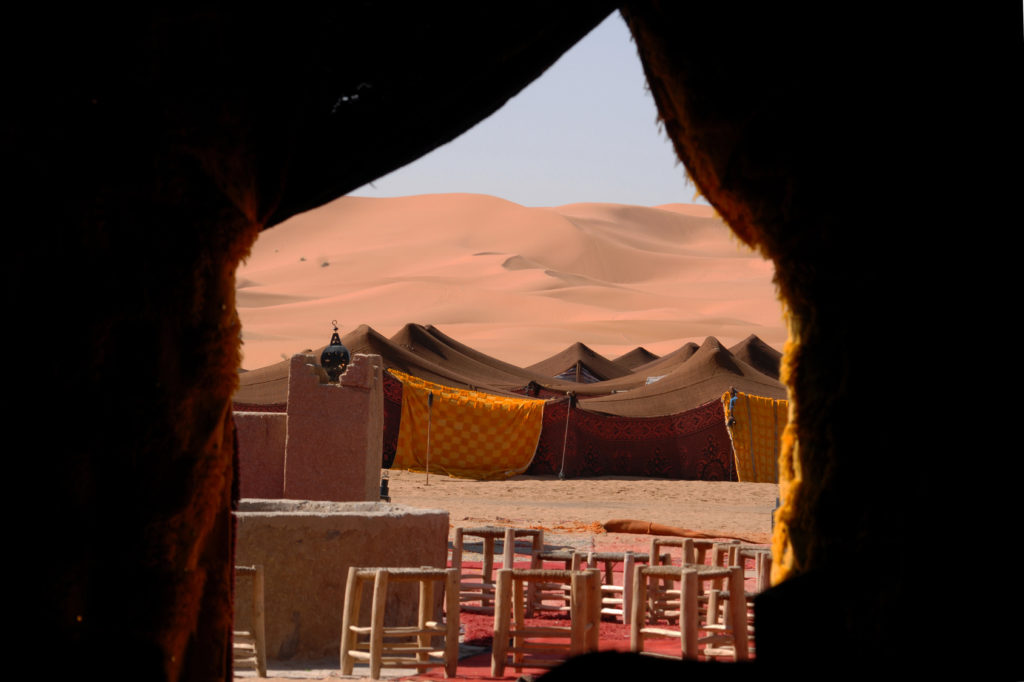
Spring is very pleasant in the south and in the mountains too, and is perfect for sightseeing. Winter sees cold nights in the desert but can be very pleasant during the day in the cities.
How to Get Morocco from the UK
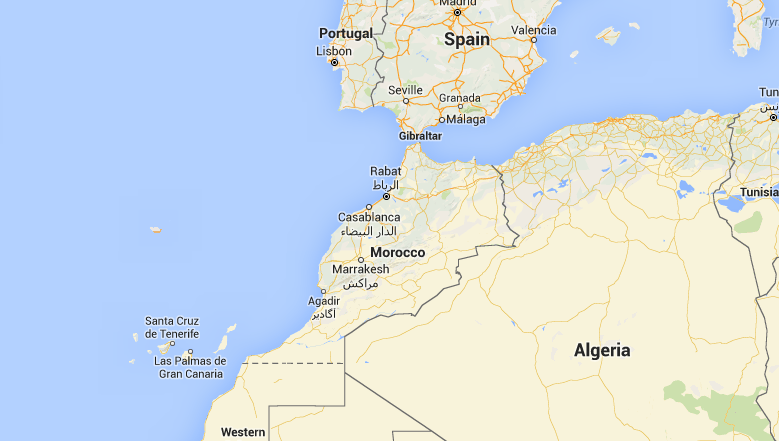
Flying is the easiest way to travel to Morocco with Royal Air Maroc offering direct flights from London Heathrow to Casablanca and Tangier. British Airways fly to Marrakesh and Agadir and easyJet fly from London Gatwick to Agadir and Essaouira. Other budget airlines, such as Ryanair, fly from London Stansted to Fez, and Marrakesh is served by Thomson Fly from Manchester.
Travelling by train from London to Morocco takes you through Paris and Madrid to Algeciras, from where it is a ferry across to Morocco. If you choose to go by bus from London Victoria to Algeciras you need to book with Eurolines, although you have to buy your tickets in two parts: London to Paris and then Paris to Algeciras.
Ferries are a good way to enter Morocco if you are coming from southern Spain. Most arrive into the port of Tangier.
From any of the major airports, ports and train stations, Shuttle Direct offer reliable and professional transfers to your final destination.
Travelling to Morocco? Don’t Miss…
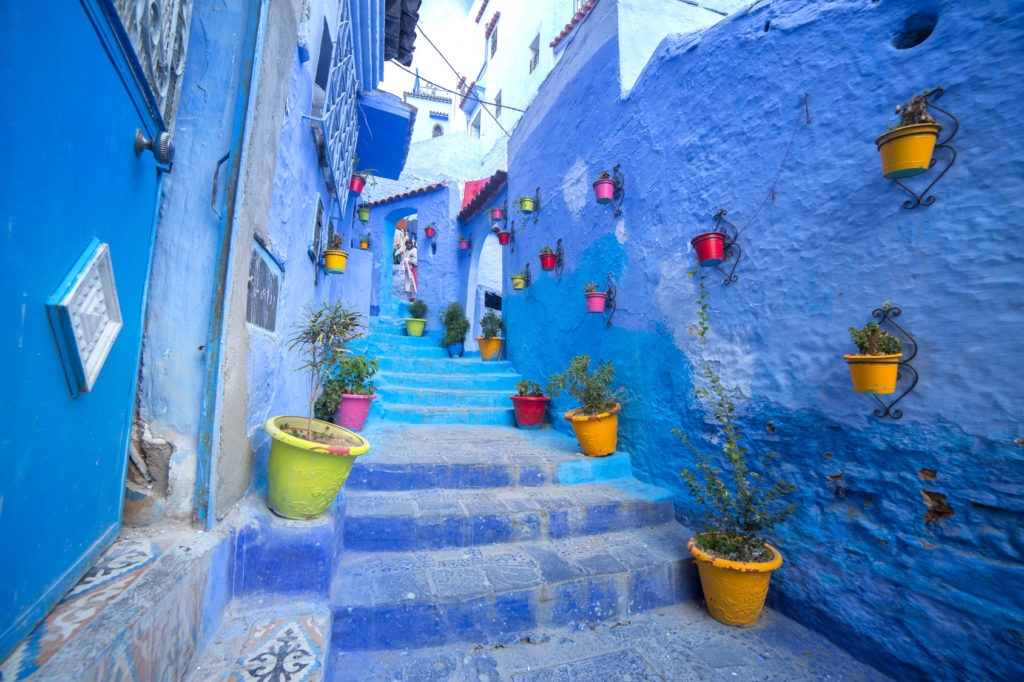
Chefchaouen is arguably the most stunning town in Morocco. Small and charming, its blue washed walls and meandering streets are all surrounded by beautiful mountains.
Atlas Passes are really thrilling for those who love a hiking challenge. The Tizi n’Test and the Tizi n’Tichka are two of the most famous.
Koutoubia Mosque is the most famous monument in Marrakesh. With its 12th century minaret, this building stands out and can be seen for several miles outside the city.
About Shuttle Direct:
Shuttle Direct offers low cost transfers to and from airports, train stations and cruise ports all across Morocco, and throughout Europe and North Africa. Pre-book an airport transfer via our secure online booking system, and all your onward travel arrangements can be in place before you leave home.

